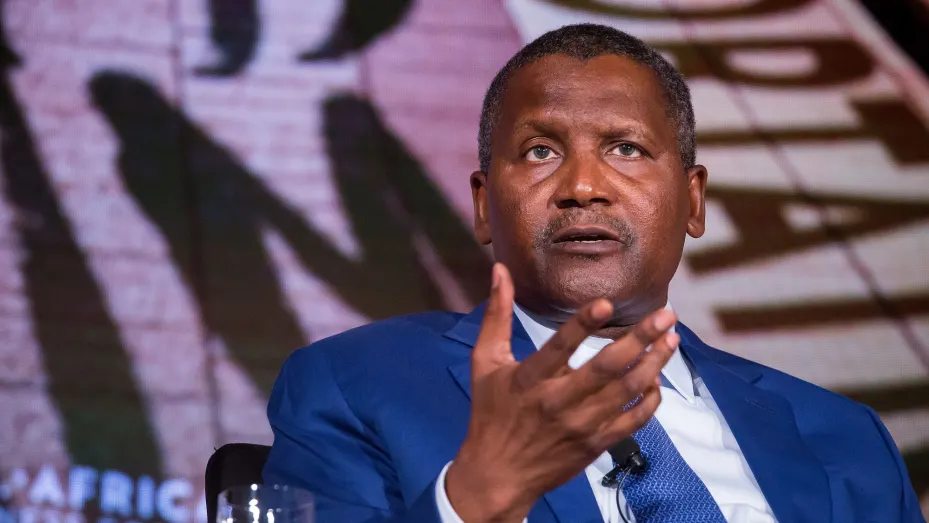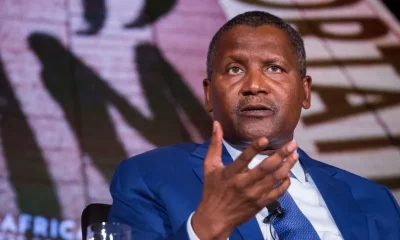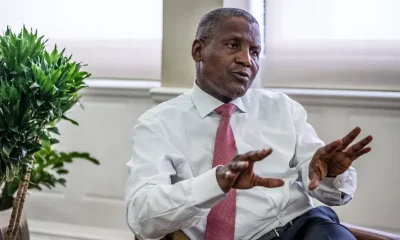Aliko Dangote, chairman of the Dangote Group, says the Nigerian economy can be turned around in a few months.
Addressing State House Correspondents after the inauguration of the Presidential Economic Coordination Council (PECC) by President Bola Tinubu, Dangote said the Public and private sectors would work together to revamp the economy.
The industrialists also promised that the private sector will advise the government on the type of policies needed to revamp the economy.
He said: “This is where the public and private sector will work together. We will advise the government on the type of policies needed to revamp the economy.
“Our economy can be turned around in few months. Things will soon change. We will work to make sure that things change for the better.”
Dangote’s remarks comes after he faulted the hike of interest rate to almost 30 per cent by the Central Bank of Nigeria (CBN).
Speaking at the Banquet Hall of the Presidential Villa in Abuja at the commencement of a three-day summit organised by the Manufacturers Association of Nigeria (MAN), Dangote called for new policies that would protect domestic industries.
He urged the federal government to protect existing businesses in the country, especially manufacturers, by providing an enabling environment for them to thrive.
He had stated: “Nobody can create jobs with an interest rate of 30%. No growth will happen. We must look to leading countries in the West and the East who are actively protecting their domestic industries.
“Import dependence is equivalent to importing poverty and exporting jobs. No power, no growth, no prosperity. Similarly, no affordable financing, no growth, no prosperity. There is no industrialisation without protection. Ignoring these facts is what gives rise to insecurity, banditry, kidnapping and abject poverty”, he stressed.
Dangote noted that industrialisation is an “inescapable route” to sustainable and inclusive economic growth and human development.
According to him, manufacturing remains a key driver in a nation’s quest for economic development and self-sufficiency.
“It is evident that the strength of a country’s manufacturing sector determines its capacity to compete in global trade, of which 70% is in manufactured goods.
“I am aware that the Bretton Woods Institutions have confused some of our economists about the word ‘protection’ to the extent that some of them think it is a blasphemy – a word that should not be uttered in good company. But how did China, Korea, India and several other Asian countries emerge as strong economies and a threat to the existing world economic order?
“We are often told that protecting your industries makes your country uncompetitive! This is pure fiction. It is quite the reverse. I say you cannot be competitive until you protect and support your own industry.
“Let me therefore conclude by reiterating that Nigeria has all it takes to develop and sustain a globally competitive manufacturing sector. But to do so, we must rethink our industrialisation policy. We must look to leading countries in the West and the East who are actively protecting their domestic industries.
“We must similarly enact policies to protect our domestic industries and nurture them into homegrown champions that will create the jobs and prosperity we desperately need”, he concluded.

 News3 years ago
News3 years ago
 Entertainment2 years ago
Entertainment2 years ago
 Privacy3 years ago
Privacy3 years ago
 News3 years ago
News3 years ago
 Sports3 years ago
Sports3 years ago
 Entertainment3 years ago
Entertainment3 years ago
 News3 years ago
News3 years ago
 Opinion3 years ago
Opinion3 years ago
















